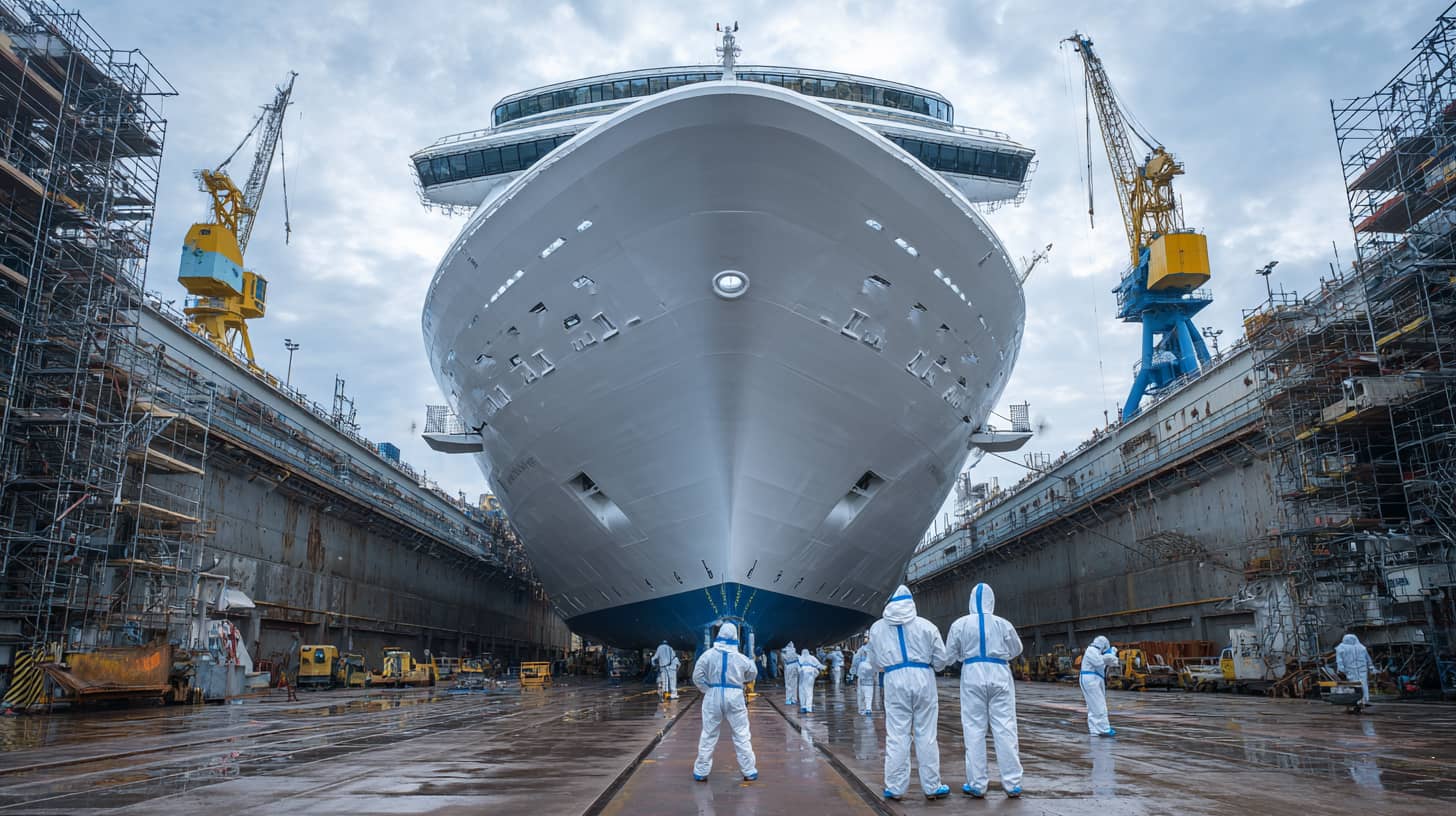Salt water, sun and 365 days of continuous use
Just imagine: A floating hotel with 4,000 passengers battles the most aggressive environment on earth 365 days a year. Salt water relentlessly attacks every metal surface, tropical sun bleaches colors, and mechanical stress caused by waves and mooring maneuvers can damage even the most robust materials.
Despite this, modern cruise ships look like they have just left the shipyard after years of continuous use. The secret lies not in better steels or revolutionary alloys - but in sophisticated coating systems that go far beyond conventional ship painting.
More than just paint - a multi-layered protection concept
What distinguishes professional cruise ship coating services from ordinary boat painting? The answer lies in the complexity of the system. While private yacht painting professionals often manage with three to five coats, cruise giants use up to 15 different coating layers.
Each layer fulfills specific functions: Corrosion protection service providers start with zinc-rich primers that function as sacrificial anodes. This is followed by epoxy resin coating service systems for mechanical protection and UV resistance. Finally, polyurethane coating expert solutions for aesthetics and ease of cleaning.
Anti-fouling: the invisible battle against marine life
The biggest challenge for marine coating companies is biological fouling. Algae, mussels and barnacles attach themselves to ship hulls and dramatically increase the flow resistance. Without an effective anti-fouling coating, fuel consumption increases by up to 40 percent.
Modern underwater hull coatings use innovative technologies: self-polishing surfaces continuously release bioactive substances, while micro-structured textures mechanically prevent fouling. These systems work without environmentally harmful toxins and still last for years.
Precision in the shipyard - quality control at the highest level
How does a marine coating service provider ensure that every square meter is perfectly protected? Through rigorous coating inspection service protocols that go far beyond visual inspections.
Coating thickness measurement Service is carried out across the board using electronic measuring devices. Adhesion test Service providers test the bond between substrate and coating. Salt spray test Experts simulate years of corrosion exposure in fast motion.
Maintenance on the high seas - when repairs can't wait
What happens if coating damage occurs while driving? Specialized paint damage repair service teams use mobile repair systems that also work in rough seas.
Ballast tank coating service is particularly critical as these areas are difficult to access. Modern coating maintenance service utilizes robotics and remote inspection systems for regular monitoring.
Sustainability through extended service life
Professional marine ship coating service systems are investments in the future. High-quality coatings not only reduce maintenance costs, but also improve energy efficiency.
Specialist surface protection solutions for cruise ships now last twice as long as they did ten years ago. Coating modernization now only takes place every five to seven years instead of annually.
Innovation from space travel for shipping
Modern ship coatings benefit from technologies from the aerospace industry. Nano technology, originally developed for satellites, makes surfaces self-cleaning and scratch-resistant.
These technology transfers are revolutionizing the entire industry. Offshore coating services, container ship painting and even private superyacht coating expert applications are utilizing innovations from the cruise industry.
Efficiency through systems thinking
Why do shipping companies invest millions in coating systems? Because quality pays off. Reduced fuel costs, extended maintenance intervals and higher availability quickly pay for premium coatings.
Marine coating companies with cruise experience understand these interrelationships and develop customized solutions that combine technical excellence with economic rationality.
The secret of stainless cruise ships lies in the perfect combination of material science, process engineering and continuous innovation.
